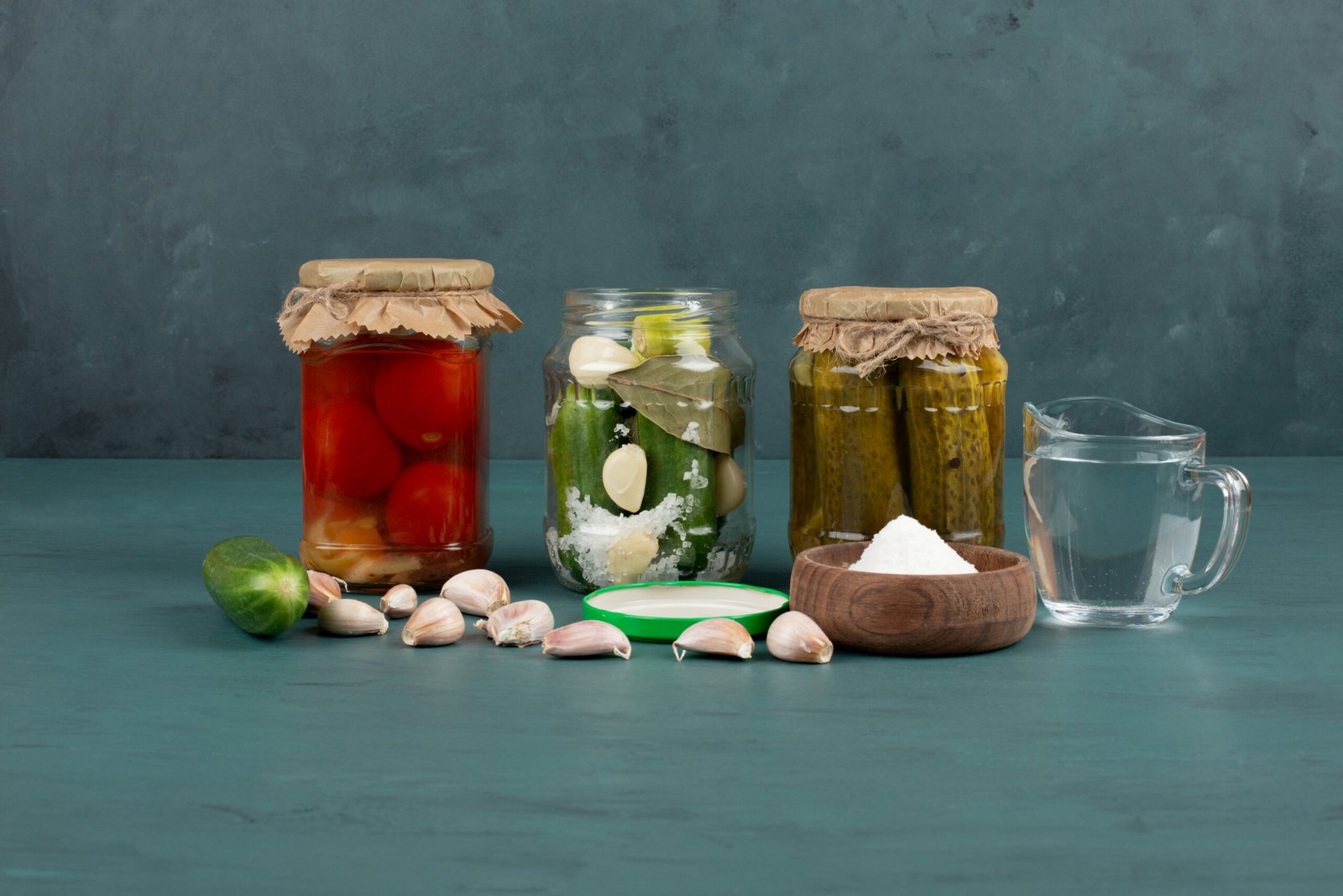Introduction
Gut health is at the forefront of modern wellness, and for good reason. A healthy gut does more than just digest food; it boosts immunity, improves mental clarity, supports nutrient absorption, and even influences mood. With rising cases of digestive disorders and lifestyle diseases, many are turning to time-tested remedies. One powerful yet underutilized solution? Indian fermented foods.
In this comprehensive 2025 guide, we explore the connection between gut health and Indian fermented foods, diving into how these traditional dishes act as natural probiotics, restore gut flora, and contribute to overall wellness.
What Is Gut Health and Why Is It Important?
Gut health refers to the balance and function of bacteria, fungi, and viruses living in the digestive tract, collectively known as the gut microbiome. When the gut microbiome is diverse and balanced, it improves digestion, reduces inflammation, strengthens the immune system, and enhances brain function.
Signs of Poor Gut Health
- Bloating, gas, or constipation
- Frequent infections or low immunity
- Skin issues like eczema or acne
- Mood disorders (anxiety, depression)
- Brain fog or fatigue
Science Behind Fermented Foods and Gut Health
Fermentation is the process where natural bacteria feed on the sugar and starch in food, creating beneficial compounds like lactic acid bacteria and short-chain fatty acids (SCFAs). These improve digestion, nutrient absorption, and gut flora.
Studies show that fermented foods increase the diversity of gut microbes, which is linked to lower rates of inflammation, obesity, and chronic disease. (Harvard T.H. Chan School of Public Health, 2021)
Top Indian Fermented Foods That Boost Gut Health
1. Curd (Dahi)
- Rich in Lactobacillus and Bifidobacteria
- Helps balance gut pH
- Eases lactose digestion
2. Idli & Dosa (Fermented Rice and Urad Dal)
- Contain beneficial yeast and bacteria
- Improve bioavailability of nutrients
- Easy to digest, light on the gut
3. Kanji (Fermented Carrot Drink)
- Rich in probiotics and antioxidants
- Detoxifies the liver and improves bowel movement
4. Pickles (Lacto-Fermented Achar)
- Made using mustard oil, salt, and spices
- Stimulates digestive enzymes
- Contains healthy bacteria (if unpasteurized)
5. Buttermilk (Chaas)
- Excellent source of live cultures
- Calms the stomach, especially after spicy meals
6. Kombucha (Fusion with Indian Spices)
- Fermented tea with a SCOBY
- Now gaining popularity in India with masala fusions
- Improves gut lining and mental health
7. Bhaat (Fermented Rice Water or Pakhala Bhata)
- Prebiotic and probiotic-rich
- Common in Odisha, Bengal, Assam
- Boosts hydration and gut recovery
LSI Keywords to Include
- gut healing Indian foods
- fermented Indian dishes
- probiotic Indian recipes
- gut flora foods in India
- traditional Indian probiotics
- digestion-boosting Indian meals
- Indian fermented drinks
- Ayurvedic gut health foods
How Fermented Foods Restore Gut Flora
- Repopulate Healthy Bacteria: Introduce beneficial bacteria like Lactobacillus plantarum.
- Reduce Harmful Pathogens: Create an acidic environment hostile to bad microbes.
- Enhance Mucosal Barrier: Support gut lining, reducing leaky gut.
- Stimulate Digestive Enzymes: Aid breakdown and assimilation of nutrients.
Cultural and Ayurvedic Perspective
Ayurveda has long recognized the importance of fermented foods for digestion. According to Ayurvedic texts:
- Takra (buttermilk) is described as the “nectar for the intestines.”
- Fermented foods balance Vata and Kapha doshas.
- Spices like hing (asafoetida) and jeera (cumin) are often added to further aid gut function.
How to Incorporate Fermented Foods in a Modern Indian Diet
- Start your morning with a glass of kanji or chaas.
- Include idli or dosa in your breakfast at least twice a week.
- Add homemade pickles to lunch (avoid vinegar-based).
- Use fermented batters instead of refined flour for snacks.
- Try fusion recipes like kombucha with tulsi or amla.
Precautions and Tips
- Always opt for homemade or unpasteurized versions for probiotic benefit.
- Avoid over-fermented or spoiled foods (watch for smell or mold).
- Start small to avoid bloating.
- Consult a doctor if you have IBS, SIBO, or histamine intolerance.
Addressing Content Gaps (Compared to Top Blogs)
Most existing blogs skip:
- Scientific studies backing Indian fermented foods
- Ayurvedic rationale
- Regional diversity (East Indian, South Indian traditions)
- Daily usage tips and fusion options (e.g., masala kombucha)
- Specific gut flora strains in each food
We’ve filled all these gaps to make this guide comprehensive and practical.
FAQs About Gut Health and Indian Fermented Foods
Q1. Can Indian fermented foods replace probiotic supplements?
Yes, in most cases. Foods like curd, kanji, and chaas contain live cultures that are as effective as supplements when consumed regularly.
Q2. How often should I eat fermented foods for gut health?
2–3 servings per day (e.g., chaas at lunch, pickle with rice, curd at dinner).
Q3. Are all fermented foods probiotic?
No. Only those with live cultures (unpasteurized) offer probiotic benefits.
Q4. Can fermented foods cause gas or bloating?
Yes, if introduced suddenly or consumed in excess. Start small and build up.
Q5. Are fermented foods safe during pregnancy?
Yes, if homemade and hygienically prepared. But always consult a doctor.
Final Thoughts
Gut health is not just a trend—it’s a necessity for long-term vitality. Indian fermented foods offer an affordable, accessible, and culturally rich way to support your digestive system. Whether you’re looking to improve digestion, immunity, or mental health, these traditional foods are your natural allies.
Incorporate them mindfully, and let your gut feel the difference.

